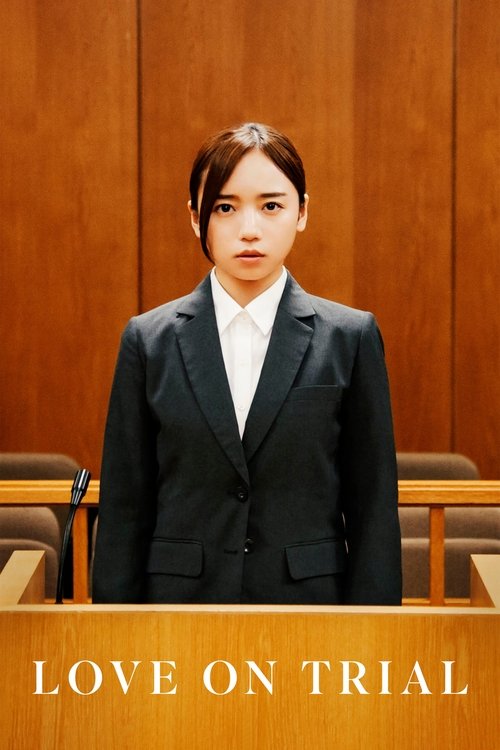
Ask Your Own Question
What is the plot?
In 2015, Jogesh wakes to the same dim light that has filled the small room where extremists hold him. Men bound his hands and force him to shelter one of their operatives inside his home; the stranger they insist he harbor turns out to be Bhanu, a childhood friend. Bhanu arrives tired, guarded, and speaking little; he tells Jogesh that he must not ask questions about his disappearance, and he refuses to explain how he returned to the hills. The extremists keep pressure on Jogesh while Bhanu moves through the house like someone carrying a long, dangerous secret.
Years earlier, on the day Jogesh's father retires from the school where he taught, Bhanu's younger brother, Rabi, goes into the nearby forest and never comes back. Officers from the Mohangunj police station close the investigation quickly, issuing only a terse notice to Bhanu's father that the killers are believed to be after Bhanu and that Rabi's death will not be pursued further. The family receives no forensic report in public; the villagers suspect foul play. Bhanu flees Mohangunj with help from a tea estate manager who once worked with his father. He reaches Guwahati and disappears into the city's margins. Newspapers later publish Bhanu's death, and his father is abducted and subjected to brutal torture after the community rumor of Bhanu's escape spreads. The memory of his brother's death and the violence inflicted on his father harden Bhanu into someone who will not let the past lie.
Bhanu ends up recruited by an extremist group. Four years after the press reports claim he has died, the organization sends him on a mission to prepare a suicide blast at a high-profile political rally. They assign him the mission date and the explosive device. When he receives the assignment, he chooses to stay at Jogesh's house while he scouts the target zone, telling Jogesh he needs the cover of an old friend's home to move through the area unnoticed. He spends his days watching the rally site, planning escape routes he will not use, and keeping a distance from the people he once loved.
In Mohangunj, Bhanu slips into the disguise of Indranath Khasnobis, an old man with a shaved head and slow gait. He becomes his father's regular companion on morning walks, settling into the role of an attentive, gray-haired neighbor so that he can see his family without alarming them. Working with Jogesh, who has a steady job at the post office, Bhanu collects his savings and, in a hand that trembles only sometimes, delivers 250,000 rupees--twenty-five lakh rupees--to his father. He insists the money is meant to secure his father's life and to make up, in some monetary way, for what he has taken away from them by leaving.
Bhanu arranges a private meeting with Rupa, the woman who had been his wife and whom he had not seen since the night he left. He finds that Rupa has married again in the intervening years; she lives under the roof of a new husband named Anindya and is raising a small daughter, Titli, whom Bhanu had not known existed because Rupa's pregnancy occurred two months after he left Mohangunj. Bhanu looks at Titli, at Rupa's attempt to move on, and he gives Anindya part of his remaining savings with the curt request that Anindya take good care of Rupa and Titli. He tells Jogesh that he will also send five lakh rupees to the tea estate manager who enabled his initial escape, a repayment for the debt of gratitude he owes.
On the day he hears that Rupa plans to remarry on the 28th, which coincides with the date the extremist group has designated as the bombing day, Bhanu sits in Jogesh's kitchen and lets memories wash over him: the laugh Rupa used to make, the night Rabi disappeared, the man his life might have been. The date lodges in him like a stone. He speaks no more of the mission to Jogesh. He takes decisions that cannot be undone.
Shortly before the imposition of curfew in Mohangunj, Bhanu tracks down and kills two men he holds responsible for the original injustices. He finds the politician's son who, according to local accounts, took part in the ambush that ended Rabi's life. Bhanu confronts him in the politician's compound and shoots him at close range; he fires three times, striking the young man in the chest and head, and leaves the body slumped against the tiled floor. Later the same night, Bhanu goes to the Mohangunj police station to confront the officer who closed the case on Rabi. The officer, a corrupt constable who helped cover up evidence, steps out into the police yard; Bhanu forces him back into an interrogation room and executes him with two shots to the torso. The killings are deliberate, quick, and personal. Word of both deaths travels through Mohangunj and contributes to the authorities' decision to declare a curfew.
On the 28th, with curfew in place and military checkpoints tightening the roads, Bhanu meets the people he still claims to adore. Disguised as Indranath, he walks his father along the familiar path one last time, speaks briefly with Rupa before her marriage ceremony, and touches Titli's hair with a hand that does not shake when she smiles. He leaves Mohangunj that night without showing where he will go. At the rally -- organized in another city and designed as the target for the high-profile bombing -- Bhanu moves through the crowd, bearing the explosive device against his chest beneath a loose coat. The film cuts between the bright, flower-strewn stage where dignitaries gather and the packed public who have come to see them. Rupa sits in a different hall where her wedding to Anindya proceeds; the editing intercuts shots of the couple saying vows with images of the rally's podium and the night sky above it. When Bhanu reaches the designated standing point amid the crowd, he detonates the device. The explosion engulfs the stage, kills security personnel and politicians in proximity, and destroys the seats nearest the blast. Bhanu dies in the explosion, along with dozens of other people at the rally; his death is violent and public. Authorities later treat him as the suicide bomber responsible for the attack.
Meanwhile, in a separate but temporally overlapping strand of the story, two reclusive figures live their long nights in a different city. Adam and Eve live a nocturnal life together, surrounded by music and ancient books in their ramshackle, dim apartment. Adam wakes in the same listless manner he has recently adopted and considers ending his own life. He handles a pistol in one hand, reads a dusty letter with the other, and leaves the gun on the table as he walks into the day. He does not kill himself.
Eve receives a surprise visitor: Ava, her younger sister, arrives unannounced. Ava carries an unpredictable energy and a feral hunger. The trio -- Adam, Eve, and Ava -- sit together in the cluttered kitchen. Ian, a young man whose life has recently intersected with theirs, tries to keep up in conversation and assumes he is safe among the immortals. Ava, without warning, lunges at Ian and sinks her teeth into his neck. She bites deeply, ripping skin and flesh, and Ian bleeds onto the wooden floor. He gasps once and then twice; his lungs inhale and then they still. Ian dies from the bite and the rapid loss of blood. Adam and Eve stare at the body. They move with practiced efficiency: they bundle Ian's corpse in sheets, carry it out of the apartment, and transport it to a place where the neighborhood's oddities can be disposed of without attracting the police. After they finish, they send Ava away to avoid further complications -- they tell her she must leave the city until the situation cools.
Adam and Eve travel next to the countryside to visit Christopher Marlowe, a man who has lived through centuries and now lies feverish. Marlowe clutches a goblet; he has been drinking blood that is contaminated and it poisons him. He coughs up dark fluid and tells Adam and Eve that he is dying, with a voice that carries a lifetime. In a moment of confession, Marlowe admits to Adam and Eve that he is the true author of the works attributed to Shakespeare; he claims to have written the plays under a false name. He delivers this revelation slowly, then his eyes glaze. The contaminated blood rots his tissues; he convulses, falls into a long silence, and then dies with a small, dry breath. Adam and Eve stand at Marlowe's bedside as his life leaves him. They close his eyes and cover his face.
Back in Mohangunj, the aftermath of the rally explosion reverberates through families. Rupa sits at her wedding feast, her white sari stained with tears; Anindya holds her hand and looks at the radio as news anchors describe the bombing. Titli, unaware of the gravity of the event beyond a child's fear, clutches Anindya's sleeve. Jogesh learns that Bhanu has detonated the bomb; he flees to the city where the news is grim. The authorities identify Bhanu as the suicide bomber based on car records, phone traces, and eyewitness accounts; they release statements that he has died in the blast.
The film closes with scenes of departure. Adam and Eve drive away from the country house where Marlowe died, carrying with them a small parcel of the late man's manuscripts. They return to their apartment and find it emptied of the immediate chaos of the Ian incident; Ava is gone, Marlowe is dead, and the city hums on. In Mohangunj, Rupa continues with the formalities of marriage to Anindya under a cloud of loss; she accepts a life rebuilt on broken ground. Jogesh, whose hands are roughened from post office work and from the night he carried Bhanu into his home, sits alone at a bench and watches the road that leads away from his town.
In the final images, the film presents two separate reckonings: the two immortal lovers tend to their dwindling company and to the body of a writer who claims a secret legacy; the human community around Mohangunj counts the cost of a violent act and tries to fold its grief into the ordinary practice of living. The last frame shows Bhanu's absence as Rupa stands under a string of lights with Anindya, while Adam and Eve sit in their apartment amid records and silence, neither saving nor being saved by the passing of the night.
What is the ending?
The ending of A Love Too Captivating (2025) shows Misuzu and Kitahara finally confronting their feelings for each other after overcoming social isolation and bullying. Misuzu accepts Kitahara's friendship and potential love, breaking down his walls of self-imposed loneliness, while Kitahara stands by Misuzu despite the risk of being ostracized himself.
Now, narrating the ending scene by scene in detail:
The final sequence begins with Misuzu walking alone through the school courtyard, his expression guarded but contemplative. He recalls the moment when he first saw Kitahara surrounded by bullies and how he impulsively stepped in to help. This memory triggers a shift in Misuzu's resolve, as he realizes how much Kitahara's interest has affected him.
Next, Kitahara approaches Misuzu quietly, away from the crowd. The atmosphere is tense but intimate. Kitahara gently tells Misuzu that he doesn't care about the rumors or the social consequences and that he wants to be by his side. Misuzu initially pushes Kitahara away, repeating his fear that anyone close to him will be ostracized. His voice trembles with vulnerability, revealing the depth of his isolation.
Kitahara responds with quiet determination, insisting that their connection is worth the risk. He offers his hand, symbolizing trust and solidarity. Misuzu hesitates, then slowly takes it, a small but significant gesture of acceptance.
The scene shifts to a montage of the two walking together through the school halls, no longer alone. Other students glance their way, some with surprise, others with indifference, but Misuzu's expression softens, showing a newfound hope.
In the closing moments, Misuzu and Kitahara sit side by side on a bench under a blooming tree, the sunlight filtering through the leaves. Misuzu admits that he's scared but willing to try. Kitahara smiles reassuringly, promising to face whatever comes together.
The film ends on this hopeful note, with both characters embracing the possibility of connection and acceptance despite the social challenges they face.
Regarding the fate of the main characters:
- Misuzu overcomes his self-imposed isolation and opens up emotionally, beginning a path toward healing and friendship.
- Kitahara remains steadfast and supportive, willing to face social ostracism to stand by Misuzu.
- The story closes with both characters united, suggesting a future where they confront their struggles together rather than alone.
Is there a post-credit scene?
There is no information in the search results indicating that the movie titled A Love Too Captivating (2025) has a post-credits scene. None of the sources mention this film or provide details about any scenes after the credits for it. The search results mostly discuss post-credits scenes for other 2025 movies like Heart Eyes and A Minecraft Movie, but not A Love Too Captivating.
Based on the available data, it appears that A Love Too Captivating does not have a post-credits scene, or at least no publicly confirmed one as of now.
What incident led to Misuzu being branded a delinquent and isolated from others?
Misuzu was branded a delinquent due to a small incident that caused him to become isolated from his peers, though the specific details of the incident are not explicitly described in the available sources.
How does Misuzu first encounter Kitahara, and what prompts him to help him?
Misuzu first sees Kitahara, the top student, surrounded by bullies and decides to help him out, which sparks Kitahara's interest in Misuzu despite Misuzu's initial reluctance to get involved.
What is Misuzu's reason for pushing Kitahara away despite Kitahara's interest?
Misuzu pushes Kitahara away because he fears that if Kitahara gets involved with him, Kitahara will also be ostracized by everyone else, reflecting Misuzu's concern about social isolation.
Who are the main voice actors for the characters Misuzu and Kitahara in the 2025 anime special?
In the 2025 anime special, Chiaki Kobayashi voices Misuzu Aoba, and Takeo Ōtsuka voices Riku Kitahara.
What role does the teacher character play in the story, and who voices this character?
The teacher character appears as a supporting figure in the story, voiced by Daisuke Kageura, though specific plot details about the teacher's role are not detailed in the available information.
Is this family friendly?
The 2025 animated TV special A Love Too Captivating is a Boys' Love (BL) romance drama that deals with themes of bullying, social isolation, and emotional vulnerability. It is not specifically targeted as a family or children's film and may contain content sensitive for younger viewers or those sensitive to certain topics.
Potentially objectionable or upsetting aspects include:
- Bullying and social ostracism: The story involves characters being bullied and socially isolated, which may be distressing for children or sensitive viewers.
- Emotional struggles and rejection: The main characters face emotional pain, rejection, and complex interpersonal dynamics that could be intense or upsetting.
- Romantic themes in a BL context: As a Boys' Love romance, it includes romantic and emotional content between male characters, which may not be suitable for all children depending on parental preferences.
There is no indication of explicit violence, strong language, or graphic content, but the emotional and social themes suggest it is more appropriate for teens and older audiences rather than young children or those sensitive to bullying and emotional distress.























